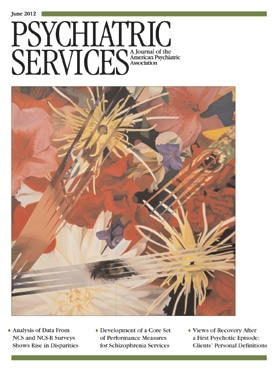 A new study in Psychiatric Services examined the association between adherence to antipsychotic and cardiometabolic medication and the use of health care services and expenditures.
A new study in Psychiatric Services examined the association between adherence to antipsychotic and cardiometabolic medication and the use of health care services and expenditures.
A total of 87,015 unique patients with schizophrenia who received at least one antipsychotic medication were reviewed via Medicaid files from 2004 to 2008. An annual cross-sections of patients with schizophrenia and diabetes, hypertension, or hyperlipidemia were evalutate. Annual adherence to antipsychotic and cardiometabolic medication was defined as a score of at least 80% on proportion of days covered.
Adjusted annual expenditures for emergency and inpatient care were higher for patients who were nonadherent to either antipsychotics or cardiometabolic medications than for patients who were adherent to antipsychotic and cardiometabolic medications. They were highest for patients who were nonadherent to both groups of medications.
The authors concluded that among Medicaid patients with schizophrenia, cardiometabolic conditions are common, and adherence to antipsychotics and adherence to cardiometabolic medications are strongly related. Recommendations were to improve interventions that can improve medication adherence to treatment of both schizophrenia and comorbid cardiometabolic conditions which may, in turn, reduce emergency visits and hospitalizations.







